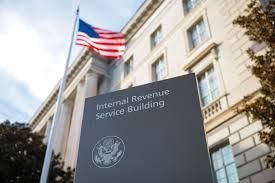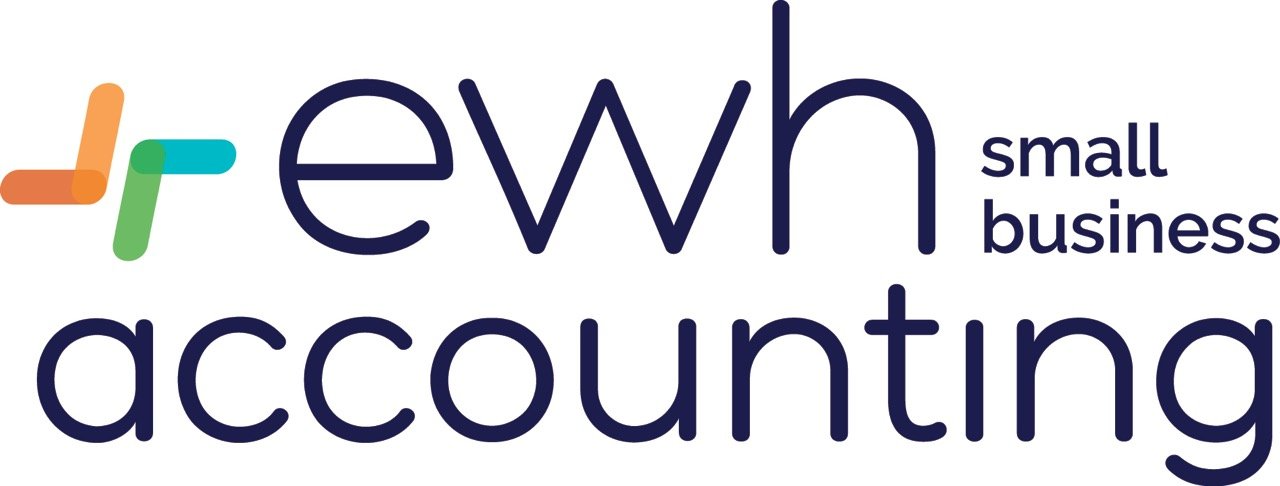Tax Pros Urged to Help Clients Set Up IRS Online Accounts
February 17, 2025
Tax Pros Urged to Help Clients Set Up IRS Online Accounts
As the tax season gets into full swing, concerns are mounting over potential staffing cuts and other changes at the IRS impacting service levels for tax professionals and taxpayers alike. While employees who are critical for the 2025 filing season are not projected to be part of the recently announced federal employee buyout, tax professionals are strongly encouraged to advise their clients to establish IRS online accounts to help streamline interactions with the agency and avoid delays.
The IRS online account platform allows taxpayers to access a range of critical services, including:
Viewing tax balances and payment history
Accessing transcripts for prior years' tax returns
Receiving notifications of any tax-related issues
Setting up payment plans or managing direct deposits for refunds
Benefits of Online Accounts
For taxpayers, an online account provides a convenient, self-service option to manage tax obligations without relying on long wait times for IRS phone or in-person support. Tax professionals also benefit by having clients who can access key documents and information quickly, allowing for more efficient tax preparation and issue resolution.
"With staffing constraints at the IRS, delays in correspondence and support are inevitable," said Scott Artman, Chief Executive Officer of NATP. "Encouraging taxpayers to establish online accounts now can significantly mitigate these delays and ensure a smoother tax filing process."
How Tax Professionals Can Help
Tax professionals are critical in educating clients about the benefits of IRS online accounts and guiding them through the setup process. Steps for clients include:
Visiting the official IRS website at www.irs.gov/account
Creating an ID.me account or verifying their identity through an existing login
Securing their account with two-factor authentication for added protection
Taxpayers should be reminded to use secure internet connections and avoid public Wi-Fi when accessing sensitive financial information, ensuring they feel secure and protected.
Preparation Is Key
With the IRS's potentially limited resources, preparation is key for both tax professionals and their clients. By acting now, taxpayers can take control of their tax matters, reduce the risk of service disruptions, and ensure timely compliance with filing requirements, providing a sense of relief and reducing stress.
For more information on establishing an IRS online account, visit https://www.irs.gov/payments/online-account-for-individuals.

Some taxpayers are receiving CP59SN notices even though they filed valid extensions for their 2024 returns, pushing their due date to Oct. 15, 2025. This appears to be part of a broader issue within the IRS’s notice system. As a trusted tax professional, it’s important to understand what’s happening and what to communicate to clients. What is a CP59SN notice? A CP59SN notice is sent by the IRS when its records indicate a taxpayer has not filed a return. The “SN” variant refers to specific groups of nonfilers, often identified by third-party information the IRS has received, such as W-2s or 1099s. These notices are designed to prompt taxpayers to file or provide an explanation. Why the notices are problematic There are reports on social media of multiple instances where taxpayers received these notices despite filing a timely extension with the IRS earlier this year. These extensions give taxpayers until Oct. 15, 2025, to file their returns. In addition to these accounts, the AICPA has reported that it is in communication with the IRS regarding the issue. The issue seems to stem from the IRS not properly recognizing or processing the extensions before issuing the CP59SN notices. Although the IRS has not released an official statement acknowledging a systemic error, the consistency and timing of these reports indicate this may be more than isolated incidents. What you should do If your clients receive a CP59SN notice despite having a valid extension on file, here’s how to respond: Confirm the extension Review your records and confirm that the extension was filed and accepted. If you submitted it electronically, you should have an acknowledgment receipt. Check the client’s IRS transcript Use your IRS e-Services account to view the taxpayer’s account transcript. This will show whether the extension was received and processed. Advise the client not to panic Reassure your client that if a valid extension was filed, they are not in violation and the notice is likely incorrect. Respond if necessary While not always required, you may choose to respond to the notice with a copy of the extension acknowledgment to help prevent additional notices or confusion. Continue monitoring the IRS for updates If the IRS formally addresses the issue, we will share the update with our members. NATP is listening We’re actively monitoring this situation and encourage members to report any additional instances. Your experiences help us advocate for clear communication from the IRS and practical resolutions for issues that impact your clients.

Is there really a shortage of Accountants? The accounting profession, once viewed as a stable and essential pillar of the business world, is facing an unprecedented talent crisis. Across the United States and beyond, firms are grappling with a shortage of qualified accountants, a trend that threatens not only the day-to-day operations of businesses but also the integrity of financial reporting and compliance. The numbers paint a sobering picture: more than 300,000 accountants and auditors have left their jobs in just the last three years, and the pipeline of new talent is shrinking at a pace that alarms industry leaders. But statistics only tell part of the story. To understand the roots of this shortage, we must dig deeper-into changing demographics, evolving workplace expectations, the shifting demands of the profession, and the disruptive force of artificial intelligence (AI). Is this a temporary blip, or is the accounting profession at a crossroads that will permanently reshape its future? The Numbers: A Crisis by the Data Let’s start with the hard facts. According to the U.S. Bureau of Labor Statistics, the accounting and auditing workforce has shrunk by over 17% since 2020, with more than 300,000 professionals exiting the field. The American Institute of CPAs (AICPA) reports that 75% of current CPAs are nearing retirement age, a demographic wave that is creating an estimated 136,400 annual job openings through 2034. Meanwhile, the number of new accounting graduates is dropping fast: in 2022, there was a 7.4% decline in accounting bachelor’s and master’s degrees awarded-the steepest single-year drop in over 30 years. This talent gap is having real-world consequences. Firms are taking four to five weeks, on average, to fill open accounting roles, and some positions remain vacant for months. Smaller businesses, which can’t offer the same salaries or perks as the Big Four, are hit hardest. The shortage is also pushing up salaries and workloads, contributing to burnout and further attrition-a vicious cycle that’s proving hard to break. Why Is the Shortage Happening? Unpacking the Causes 1. The Silver Tsunami: Demographics and Retirement The most immediate cause of the shortage is demographic. The profession is dominated by Baby Boomers, many of whom entered accounting during the profession’s heyday in the 1970s and 1980s. Today, nearly three-quarters of CPAs are at or near retirement age. As these experienced professionals leave the workforce, they’re taking decades of institutional knowledge with them-and there simply aren’t enough younger accountants to replace them. 2. The Shrinking Talent Pipeline: Fewer Students, Higher Barriers The pipeline of new talent is also narrowing. In 2023, only 1.4% of college students chose accounting as their major, down from 4% just a decade ago. Why the decline? Many point to the daunting requirements for CPA licensure. The 150-credit-hour rule, which requires students to complete an extra year of education beyond a typical bachelor’s degree, adds significant time and financial burden. The CPA exam itself is notoriously rigorous, often requiring hundreds of hours of preparation. At the same time, the profession faces stiff competition from other fields. Technology, finance, and engineering offer higher starting salaries (engineering and computer science graduates earn $10,000–$15,000 more on average) and are often perceived as more dynamic and future-oriented. For many students, accounting simply doesn’t have the same allure. 3. Workplace Realities: Burnout and Monotony Even for those who enter the field, retention is a challenge. Accounting has long been associated with long hours, especially during tax season and audit cycles. According to a recent survey, 42% of accounting firms report significant retention issues, with burnout cited as a leading cause. Entry-level roles often involve repetitive, transactional tasks like reconciliations and data entry, which can feel monotonous to a generation seeking meaningful, strategic work 4. Changing Expectations: The Evolving Role of Accountants The profession itself is changing. Today’s accountants are expected to do more than just “keep the books.” They’re increasingly called upon to provide strategic business advice, interpret complex data, and navigate a rapidly evolving regulatory landscape. This shift requires a new set of skills-ones that many new graduates simply don’t have. The Skills Gap: What Are Companies Looking For? As the shortage intensifies, employers are raising the bar for new hires. The days when a solid grasp of debits and credits was enough are long gone. Here’s what companies are seeking-and where many new accountants are falling short: Technical Skills Advanced Software Proficiency: Familiarity with cloud-based accounting platforms (like QuickBooks Online, Xero, and NetSuite) is now a baseline expectation. Firms also want candidates comfortable with AI-driven tools, robotic process automation (RPA), and advanced Excel functions. Data Analytics: The ability to analyze and interpret large data sets is increasingly critical. Employers value proficiency in data visualization tools (such as Power BI or Tableau), as well as basic programming skills in Python or SQL for more complex analyses. Regulatory Knowledge: As global business becomes more complex, understanding the nuances of evolving standards (GAAP, IFRS) and tax laws is essential. Soft Skills Communication: Accountants must be able to translate complex financial data into actionable insights for non-financial stakeholders-whether that’s a business owner, a board of directors, or a client. Adaptability: The pace of technological change is accelerating. Accountants who can quickly learn new tools and adapt to shifting client expectations are in high demand. Strategic Thinking: Beyond compliance, firms want accountants who can provide forward-looking advice and help drive business growth. Unfortunately, many new graduates lack these skills. Universities are only beginning to update curricula to reflect the profession’s new realities, and on-the-job training can only go so far when firms are already stretched thin. Can AI Solve the Shortage-or Replace Accountants Altogether? With the talent crunch reaching critical levels, many firms are turning to technology, particularly AI and automation, to bridge the gap. The promise is compelling: AI-powered tools can handle repetitive, time-consuming tasks like invoice processing, bank reconciliations, and even some aspects of compliance reporting. This not only boosts efficiency but also frees up accountants to focus on higher-value work. The Promise of AI Task Automation: AI can automate up to 30% of traditional accounting work, according to industry estimates. This includes everything from data entry to flagging anomalies in financial statements. Increased Accuracy: Machine learning algorithms can spot errors and inconsistencies that humans might miss, reducing the risk of costly mistakes. Scalability: Firms that have embraced AI report up to 17% higher revenue growth in client advisory services, as automation allows them to serve more clients with fewer staff. The Limitations-and Risks-of Automation But AI is not a panacea. Only about 35% of firms are actively planning to implement AI, citing concerns about data security, upfront costs, and the need for human oversight. While machines excel at crunching numbers, they can’t replace the nuanced judgment, ethical decision-making, and client relationships that define the profession. There’s also a risk that over-reliance on automation could erode trust in financial reporting. Clients and regulators alike want assurance that a qualified professional-not just an algorithm-is reviewing the numbers. Will AI Make Accountants Obsolete? The short answer is no. While AI will undoubtedly change the nature of accounting work, it’s unlikely to make accountants extinct. Instead, the profession is poised for a shift: as automation takes over routine tasks, the demand for accountants who can offer strategic insight, interpret complex data, and provide trusted advice will only grow. In fact, 61% of accounting professionals view AI as a collaborative tool, not a threat. The future accountant will be part technologist, part strategist, and part trusted advisor. The Road Ahead: Adapting to a New Reality The accounting profession is at a crossroads. The shortage of qualified talent is real, and its causes are complex-ranging from demographic shifts and educational barriers to evolving employer expectations and the rise of AI. But with challenge comes opportunity. By modernizing requirements, investing in skills, and embracing technology, the profession can not only weather the current storm but emerge stronger, more relevant, and more vital than ever. For those willing to adapt, the future of accounting is bright-not just as a career, but as a cornerstone of business strategy and success.

When running a small business, managing finances effectively is crucial for success. Many entrepreneurs reach a point where they consider hiring a Certified Public Accountant (CPA) to handle their accounting needs, but wonder about the investment required. How much does a CPA cost for a small business? The answer varies widely depending on several factors, including the complexity of your financial situation, the specific services needed, your geographic location and the CPA’s experience level. Some CPAs charge hourly rates that range from $150 to $400, while others offer monthly retainers or fixed-fee packages for specific services like tax preparation or bookkeeping. How Much Does a CPA Cost for a Small Business? When running a small business, managing finances effectively is crucial for success. Many entrepreneurs reach a point where they consider hiring a Certified Public Accountant (CPA) to handle their accounting needs, but wonder about the investment required. How much does a CPA cost for a small business? The answer varies widely depending on several factors, including the complexity of your financial situation, the specific services needed, your geographic location and the CPA’s experience level. Some CPAs charge hourly rates that range from $150 to $400, while others offer monthly retainers or fixed-fee packages for specific services like tax preparation or bookkeeping. Consider working with a financial advisor if you need financial advice tailored to your personal business situation According to accounting firm DeMercurio Advisors, a small business owner should expect to pay between $1,000 and $1,500 on average to have a CPA firm prepare both their individual and business tax returns. DeMercurio notes several factors that determine how expensive it would be for small businesses to hire a CPA. Here are some of the most impactful: The complexity of your returns: If your business operates in multiple states, rents real estate or you have multiple business entities, your taxes are likely to be more complicated and therefore cost more money to file. Anything that makes your returns more complicated makes it more time-consuming and potentially creates the need for a CPA with more specialized knowledge, all of which can cause the cost to rise. How good you are at bookkeeping: The quality of your records will also play into how much a CPA ends up charging you. If your records are organized, comprehensive and accurate, the costs are likely lower. If they’re unorganized, are missing information or contain errors, your CPA will have to fix these issues before they can even get started on filing your taxes — and you’ll see that reflected in your bill. The time needed to file: Many CPAs will charge an hourly rate in addition to a flat rate per return, so the total number of hours they need to spend on your small business’s taxes will play into the total cost. The two previous points will impact the time your CPA has to devote to your return. If they’re puzzling over messy notes in the margins of your financials, having to research a complex niche business issue or answering a lot of questions for you, the bill will grow. The pay range and fee structure of each firm/practitioner: Obviously, each CPA and CPA firm will have its cost structures and price breakdowns. Based on expertise, location and internal decisions, prices can vary widely, so there won’t be a one-size-fits-all price you can expect. Hourly rates can vary widely, with many falling between $150 and $400. It’s important to understand what you are expected to pay before agreeing to work with someone. Make sure you get specific details and know how your bill might end up being higher than expected. Why Do You Need a CPA for Your Small Business? How Much Does a CPA Cost for a Small Business? While a CPA’s expertise can cost a good deal, using a CPA can save you money in the long run. Small business owners who do their own taxes can make mistakes that cost them more time and money. The IRS warns that small business owners often underpay estimated taxes, don’t separate business expenses correctly, or deposit employment taxes incorrectly or late — all errors that can cause the IRS to charge a penalty and, in some cases, may trigger an audit. While the penalties themselves may cost about as much as a CPA would have in the first place, IRS audits can be quite costly and time-consuming. For a mail audit, the most common audit, the average amount owed is $7,000, according to H&R Block, and for an office or field audit, that amount skyrockets to $65,000. But a CPA can often do more than just prevent you from paying fees. Because of their deep expertise in tax law, CPAs will often know ways you can reduce your tax liability, the various deductions you may qualify for and offer other strategies that can save you money on your taxes. What services do CPAs offer? With their extensive expertise, CPAs offer a broader range of services than regular accountants. In addition to day-to-day accounting tasks, they can handle more complex and specialized work. In this section, we’ll highlight some areas where CPAs tend to focus. Tax preparation and planning While any tax accountant can help clients prepare income tax returns, CPAs are often needed for clients with more complex tax issues. In addition to tax preparation, CPAs often provide tax planning services to businesses and high-net-worth individuals. This helps clients minimize future tax liabilities while remaining compliant with the latest tax regulations. Representing clients in front of the IRS In the event of an audit by the Internal Revenue Service (IRS), taxpayers will often turn to a CPA or an enrolled agent. Like enrolled agents, CPAs are qualified to represent taxpayers in front of the IRS for audits, appeals, or disputes. Seeking representation from a CPA can make all the difference in complex tax matters relating to the IRS. Financial accounting and reporting CPAs help businesses prepare accurate financial statements. These include balance sheets, income statements, and cash flow reports. These reports are essential for assessing the financial health of a business, ensuring compliance with accounting standards, and providing transparency to investors, lenders, and regulatory agencies. Conducting audits CPAs regularly conduct rigorous audits. This involves assessing the accuracy of financial statements. It also ensures that businesses are compliant with accounting standards and regulations and have strong internal controls. In addition, audits provide assurance for external stakeholders, such as investors and regulatory bodies. Business consulting CPAs are qualified to provide strategic advice to businesses. This could relate to growth strategies, cost management, or major corporate transactions such as mergers and acquisitions. CPAs may help business leaders by providing insights into financial forecasting, business structuring, and optimizing operations for profitability. Forensic accounting Some CPAs specialize in forensic accounting. This involves investigating businesses and individuals for financial discrepancies that may indicate accounting fraud, embezzlement, or other financial crimes. Forensic accountants often work with large accounting firms, government agencies, and law enforcement. Risk management CPAs are often heavily involved in financial risk management. They may develop risk management frameworks, conduct risk assessments for new business ventures and investments, and provide guidance on best practices for avoiding financial risk. Budgeting and forecasting CPAs help businesses plan for the future through accurate budgeting and forecasting. This helps businesses set realistic short and long-term goals while maintaining a healthy financial position and mitigating financial risks. How to save on CPA costs Engaging a CPA can get expensive. Thankfully, there are several strategies you can use to reduce the overall cost of CPA services without compromising on quality. Here are some simple ways you can save on CPA costs. Bundled services Some CPA firms offer discounts for bundled services. These are essentially service packages, combining multiple standalone services as part of one deal. For example, you might get a tax bundle, comprising tax preparation and filing, tax planning, and tax compliance services — all for one price. Bundled services tend to be cheaper than buying all of the included services individually. Early-filing discounts CPA firms may offer seasonal discounts for clients who file their tax returns early. Early filing gives CPAs more flexibility as they’re typically less busy at the start of tax season than at the end. You may be able to cut 10% off your yearly tax return fees this way. Loyalty discounts Some CPAs may reward returning clients with a small discount of up to 10%. This is common for seasonal work such as tax preparation and filing. Client retention is a huge driver of revenue for CPAs, so they may be keen to incentivize you to stick around. Some CPAs might even offer discounts on future services if you write them a positive online review or refer a friend. Negotiating fees Some CPAs may be open to negotiating fees — especially if you are a long-term client or require multiple services. In some cases, you might be able to get reduced fees by committing to longer-term contracts for ongoing services such as payroll management or bookkeeping. Look for certifications and specialization It’s worth verifying that the accountant holds a CPA license. In addition to the CPA designation, check what additional qualifications, experience, or specializations they have. If you’re looking for a forensic accountant, for example, simply being a CPA might not be enough — you need someone with provable experience in that niche. Use specialized directories such as TaxDome Advisors Looking for the right CPA can be a time-consuming process. You can simplify and streamline your search by using industry-specific directories, such as TaxDome Advisors. All of the accountants, tax professionals, and bookkeepers listed on Advisors are top-rated experts with industry expertise. They are also committed to delivering an outstanding client experience using the very best technology.

